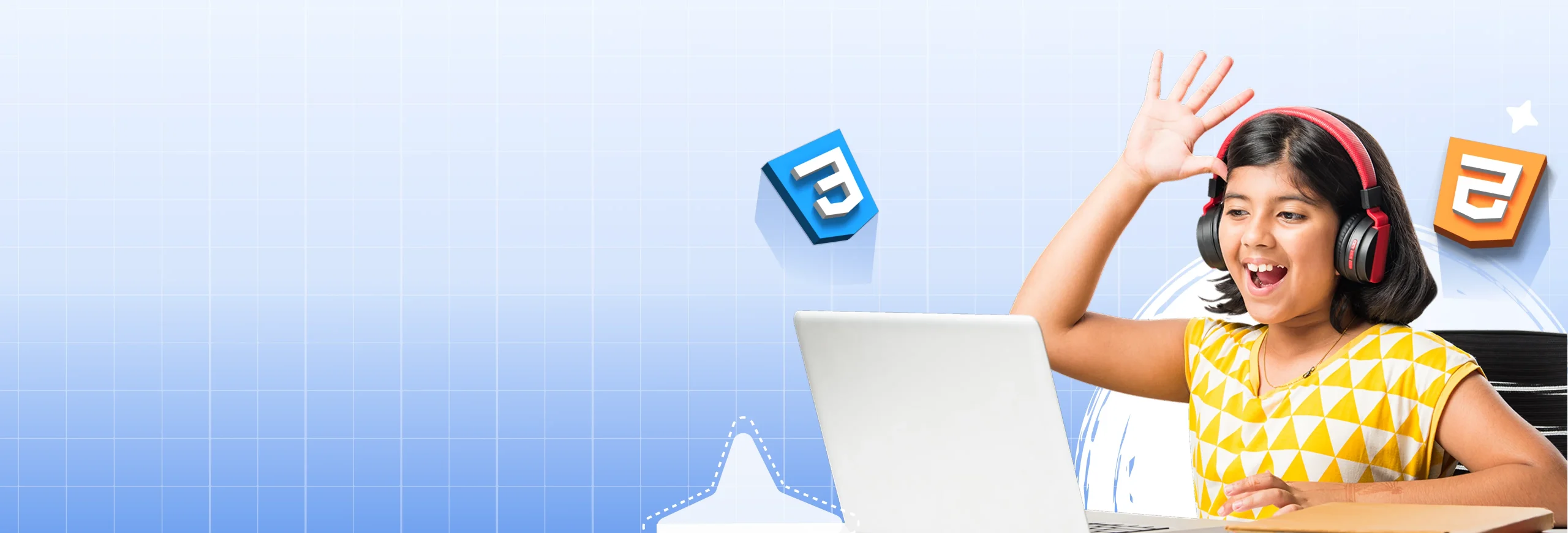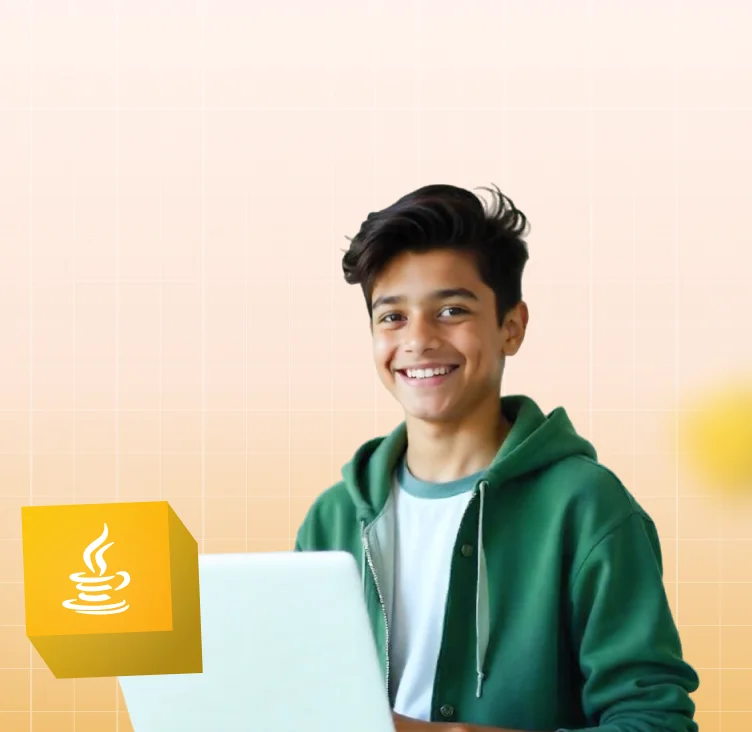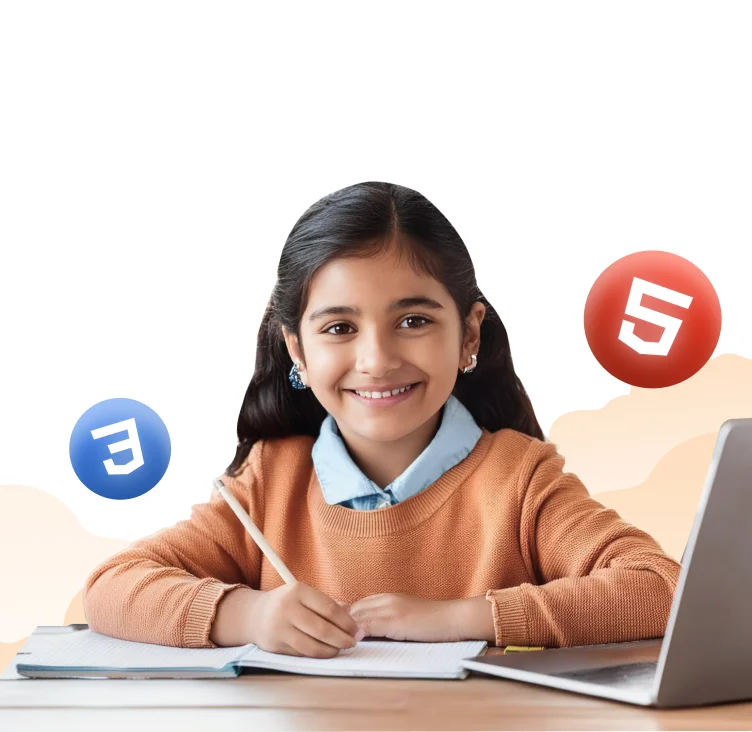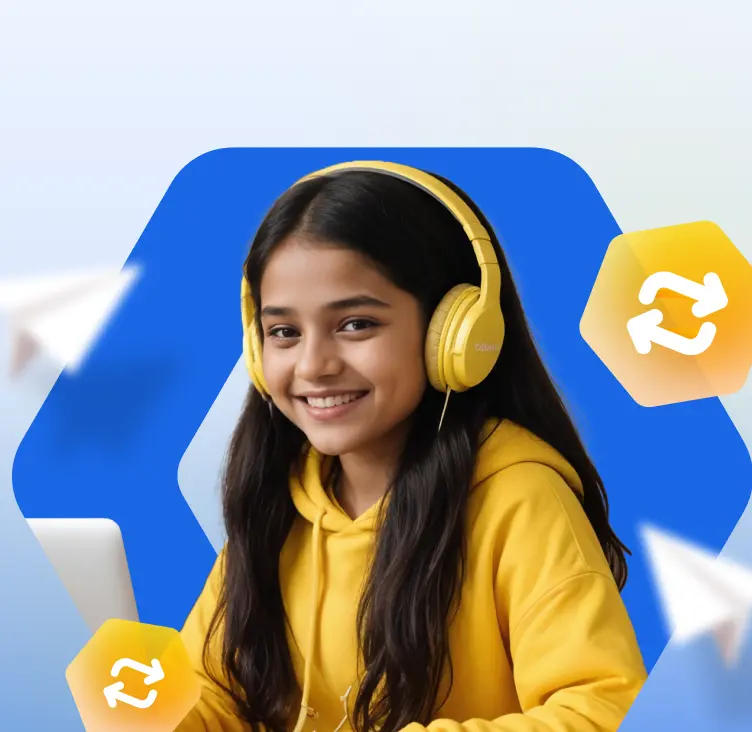Does early exposure to coding shape your child’s future? Of course, Yes!
With technology advancing rapidly, digital literacy is no longer an option but a necessity. Why Your Kid Should Join a Coding Class? The answer lies in the transformative learning experience these class offer. Coding is more than just writing lines of code, it fosters problem-solving skills, creativity, and logical thinking. Coding class provide a structured yet fun environment where kids can explore, experiment, and develop essential 21st-century skills.
What Are the Benefits of Joining a Coding Class?
Enrolling your child in a coding class offers a wealth of benefits beyond just learning to code. Here’s how it can contribute to their growth:
Enhances Problem-Solving Skills
When kids learn to code, they develop computational thinking, a structured way of approaching challenges that applies not just to programming but to everyday problem-solving. By debugging errors, adjusting their approach, and experimenting with different solutions, children learn resilience and persistence.
For example, if a piece of code doesn’t work as expected, they must analyze the issue, test different possibilities, and refine their logic until they reach a solution. This iterative process strengthens critical thinking and analytical skills, empowering kids to tackle academic and real-life challenges with confidence and creativity.
Boosts Creativity
Coding is not just about logic and structure; it is also a creative process that allows kids to bring their ideas to life. Whether they are designing their video games, developing interactive stories, or creating animations, coding encourages children to think outside the box and explore their imagination.
By experimenting with different commands, functions, and design elements, they learn how to transform abstract concepts into real, working projects. This ability to turn ideas into reality fosters a sense of accomplishment and boosts their confidence in creative problem-solving. The more they code, the more they discover new ways to innovate and express themselves.
Improves Academic Performance
Coding strengthens essential skills such as logical reasoning, pattern recognition, and mathematical thinking, all of which contribute to improved academic performance. Programming involves concepts like sequencing, loops, and algorithms, which enhance a child’s understanding of math principles such as problem-solving, geometry, and algebra.
Additionally, coding helps develop reading comprehension and structured thinking, as kids must carefully follow instructions and interpret written commands. Studies have shown that children who learn to code often perform better in STEM subjects, as they develop a methodical and analytical approach to learning.
Encourages Teamwork & Collaboration
Coding is rarely a solo activity, especially in coding class where kids work on projects together, share ideas, and solve challenges as a team. Through collaboration, they learn how to communicate their thoughts effectively, delegate tasks, and listen to different perspectives—skills that are essential in both school and future workplaces. Pair programming, hackathons, and group coding challenges teach children the value of teamwork and how to leverage each other’s strengths to achieve a common goal. This experience helps them build strong interpersonal skills, preparing them for collaborative environments in any career path they choose.
Prepares for Future Careers
In today’s technology-driven world, coding is a valuable skill that can open doors to numerous career opportunities. From software development and artificial intelligence to robotics and cybersecurity, the demand for tech professionals is growing rapidly. By starting early, kids gain a strong foundation in programming languages, logical thinking, and problem-solving—skills that are essential in many high-paying jobs.
Even for careers outside of tech, understanding coding can provide an edge in fields like business, healthcare, and finance, where technology plays an increasing role. Introducing children to coding at a young age gives them a head start in a digital-first world, setting them up for future success.
Comprehensive Guide to Types of Coding Class
Coding class come in various forms, each catering to different interests and skill levels. Here are some common types:
- School-Based Coding Class
These coding activity class are often integrated into school curriculums, these class provide structured learning with teachers or mentors.
- Online Coding Class
Virtual coding class offer flexibility, allowing kids to learn coding from anywhere at their own pace.
- Community Coding Class
Community coding class are hosted by libraries, community centers, or tech organizations, these class provide hands-on learning with local mentors.
- Hackathons & Competitions
Hackathons & coding competitions are ideal for kids who enjoy challenges, these class focus on problem-solving and innovation through coding contests.
- Robotics & Game Development Class
Specializing in building robots or designing games, these class add an exciting, interactive element to learning.
Features to Consider When Choosing a Coding Class
Selecting the right coding class can significantly impact your child’s learning experience. Here are key factors to consider:
- Age-Appropriate Curriculum
Ensure the class offers programs that align with your child’s age, skill level, and learning style. Beginners should start with block-based coding (like Scratch), while older kids may benefit from Python, JavaScript, or robotics.
- Qualified Instructors & Mentors
Look for class with experienced mentors who can guide kids effectively. Instructors should have expertise in coding as well as teaching, making complex topics fun and easy to understand.
- Interactive & Hands-On Learning
The best coding class focus on project-based learning rather than just theory. Kids should get opportunities to build real-world projects like games, animations, websites, or robots.
- Flexibility & Accessibility
Consider whether your child learns better in an online, in-person, or hybrid setup. Online class should offer structured lessons with live or recorded sessions for flexibility.
- Community & Peer Support
A supportive environment boosts motivation and engagement. Class that encourage teamwork, group projects, or peer discussions help kids learn collaboration and communication skills.
- Progress Tracking & Certifications
Look for class that offer progress tracking, quizzes, and milestone-based achievements. Certifications from recognized platforms can be valuable for future academic or career prospects.
- Cost & Affordability
Compare the pricing structure, some class offer free trials, monthly subscriptions, or one-time payments. Check whether they provide value for money based on content quality and learning resources.
Fun & Engaging Activities in a Coding Class
Coding class offer a variety of fun and engaging activities that make learning both enjoyable and educational.
Game development allows kids to bring their ideas to life by creating their own games using platforms like Scratch or Unity, enhancing their logical thinking and creativity.
Similarly, app development introduces children to building simple mobile applications, helping them understand real-world technology applications.
For those interested in hands-on innovation, robotics projects provide an exciting way to explore problem-solving by programming robots to perform tasks.
Additionally, coding challenges and hackathons encourage kids to think critically and develop innovative solutions through friendly competitions.
Another exciting aspect is storytelling with code, where platforms like Scratch enable children to animate stories using coding principles, blending creativity with technology. These activities not only make coding enjoyable but also help kids build essential 21st-century skills.
Supporting Your Child’s Coding Journey with HackerKID
HackerKID is one of the best platforms to nurture young coders, offering a well-structured learning experience tailored to different skill levels. It provides a structured learning pathway that ensures progressive learning, allowing kids to advance at their own pace. The platform keeps learners engaged with interactive courses and challenges, using gamified lessons and fun projects to make coding exciting.
Additionally, HackerKID offers live mentorship and community support, where experienced mentors guide children while fostering collaboration within a supportive peer network. A key highlight is its emphasis on real-world project building, encouraging kids to apply their coding skills in meaningful ways. By choosing HackerKID, parents can ensure their child receives a top-quality coding education in an enjoyable and interactive environment.
Are You Ready for a Tech Challenge? Skip the ordinary and jump into Buzzer, the interactive MCQ game designed for kids who love computer science and technology! Pick a topic, hit the buzzer, and test your knowledge with thrilling gamified questions. Stay sharp, score high, and claim your spot at the top! Play Buzzer now!
Wrapping Up
In today’s digital world, coding is more than just a skill, it’s a gateway to innovation, problem-solving, and future career opportunities. A coding class sprovides the perfect environment for kids to learn, explore, and collaborate while having fun. Whether your child is interested in game development, app creation, or robotics, joining a coding class helps nurture their creativity and logical thinking.
By choosing the right class, like HackerKID, parents can ensure their child receives quality coding education that is engaging and interactive. So, why should your kid join a coding class? The benefits are undeniable, give your child the head start they deserve!
FAQs
- At what age can my child join a coding class?
Most coding class like HackerKID accept kids as young as 7 years old, with age-appropriate programs available for different levels. - Do kids need prior coding experience to join a coding clas?
No, many coding class cater to beginners and provide step-by-step guidance. - What programming languages are best for kids?
Scratch, Python, and JavaScript are some of the best programming language choices for beginners who are also kids. - Are online coding class as effective as in-person ones?
Yes! Online class offer flexibility and access to quality mentorship, making them an excellent option for learning. - How much time should my child spend on coding?
It depends on interest and availability, but 2-3 hours per week is a great starting point to begin your kid’s coding journey!








